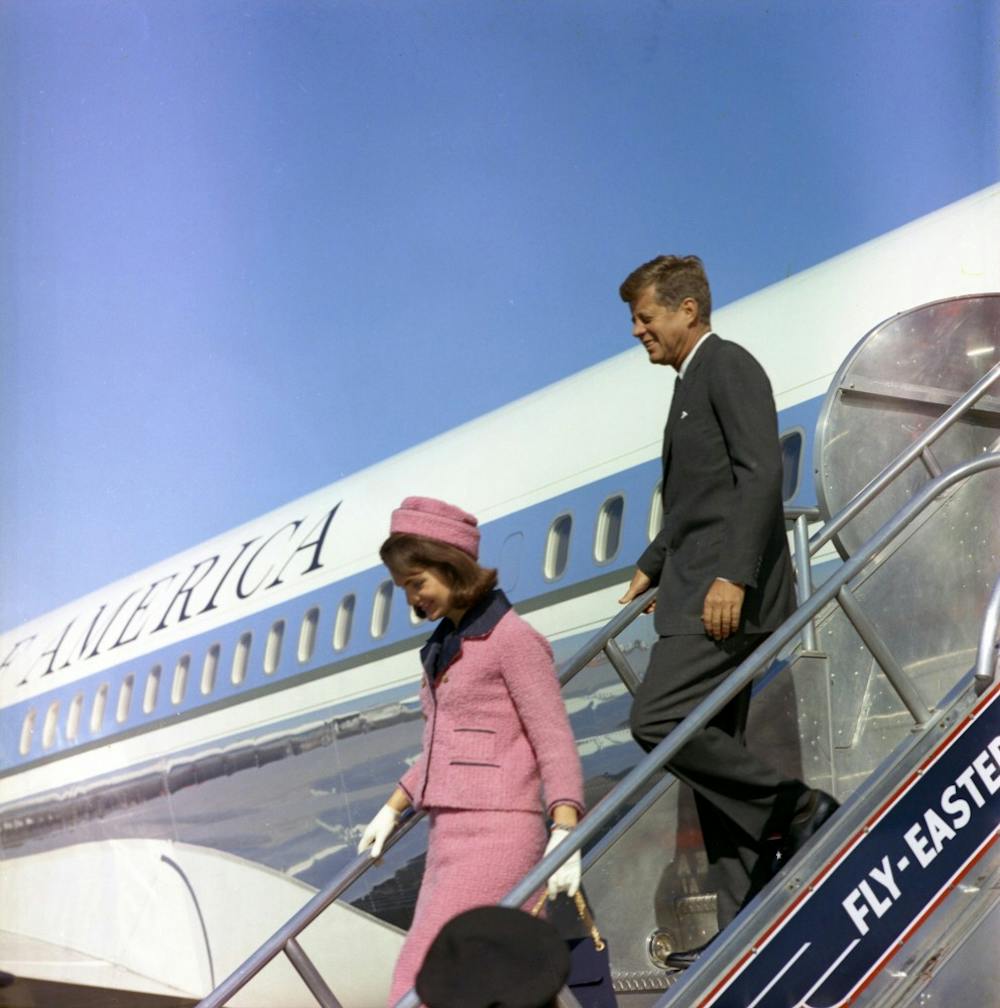Just a few days before journalist Steve Bell’s wife was expected to give birth, his assignment editor ran six blocks to his house to tell him phone lines were jammed, President John F. Kennedy was shot and he needed to go cover the story.
When Bell protested, his wife responded, “Pack for Dallas. We have friends.”
Fifty years later, the Ball State professor emeritus of telecommunications can still remember initially hearing about Kennedy’s death over the radio and the immediate confusion and mourning that took over the nation.
“It was a story that was difficult to put into context because it was such a shock to everyone, and it took time for people to really focus in on exactly what it meant for the country, what it meant to each of us individually,” Bell said. “It was a defining event for our country.”
BEHIND THE CAMERA
At the time of the assassination, Bell was working at WOW-TV in Omaha, Neb. The 27-year-old had never covered a story of that magnitude before and found himself surrounded by journalists from nationally known stations. They were all packed inside the main floor of the police headquarters, something Bell said wouldn’t happen today due to security issues.
Whenever the police wanted to interrogate Lee Harvey Oswald, the man accused of the murder, they would march him right through the crowd of media.
“We were all shouting questions at him,” Bell said. “Occasionally, he would say something. One time in particular, he complained about the food he was getting. It was just a scene that you would never find today.”
Bell said every station was shooting with film, so not only was the coverage not live, but it also had to be processed before stations could use it.
Two days after the shooting, Oswald was to be transferred from the city to the county jail. Since Bell’s station only had one camera, they chose to film at the county jail, which overlooked the scene of the assassination. Bell missed Jack Ruby shooting Oswald at the city jail.
That night, Bell ended his coverage of the assassination and headed back to Nebraska. Only four hours later, his wife went into labor.
MID SONG
Frederick Suppe, a Ball State associate history professor, was in an after-school high school choir rehearsal for a holiday concert when he heard the news that Kennedy was assassinated. The school made an announcement over the loudspeaker, which Suppe said was very unusual, since announcements were usually made at the start of the day.
Originally, his school hadn’t announced exactly what had happened to the president, so the group kept practicing. About 15 minutes later, he found out Kennedy was dead.
“[My director] just looked like he had been deflated,” Suppe said. “He was normally very optimistic and very business-like and he said — I don’t remember his exact words — but he said we need to cancel today’s rehearsal, none of us can think about singing today.”
Since Suppe was in his teens when Kennedy was assassinated, he said he wasn’t completely sure what to think about it.
“Both in the United States and foreign countries, a lot of people were psychologically shaken,” Suppe said. “It was a big jolt for people because he had been so popular. … The first two or so years of his presidency was a time where Americans could feel optimistic and positive about things. And when he was killed, wow. Things got grim.”
Suppe said Kennedy’s assassination is a negative example of what can happen when people disagree with each other.
“Regardless of what you personally or anyone else might think of [President Barack] Obama and his ideas, he’s the president and you should respect him,” Suppe said. “There are people who are ardent, hardcore Republicans and we should respect them. If they were elected, they have a responsibility to behave in a civil fashion towards one another.”
BEFORE A WEDDING
At the time of Kennedy’s assassination, Joseph Losco, now the chairperson of the department of political science and a professor, and his family were preparing for his sister’s wedding that weekend.
“The tragedy hit hard in our Catholic household, and we huddled around the TV for days,” Losco said. “The wedding was a welcome distraction from the sadness we all felt following the assassination.”
At the moment the nation found out Kennedy had been shot, Losco was in Latin class, but he didn’t learn what had happened until he got home that day.
“There was a knock at the door and the headmaster came to the door and said something to the instructor,” Losco said. “The instructor looked pretty upset, but then turned to us and said classes had been canceled for the rest of the day [and that] the buses would come and pick us up shortly.”
For Losco’s generation, the assassination was very significant, he said, since Kennedy was a young man and he communicated well with young people.
“There was a real sense of idealism that he communicated, with the Peace Corps for instance, and when those ideals seemed to be put into jeopardy with his being shot, there was a sense of real loss,” he said. “It was kind of a grand awakening politically for my whole generation.”
Losco said Kennedy’s assassination, along with Martin Luther King Jr., and the assassination of Kennedy’s brother, Bobby, dashed idealistic hopes for change and reform.
“I think it’s important that America understand that in order to remain a country of law, that we need to respect differences and that we need to give elected officials an awful lot of credit for standing up for us and taking on the very difficult task of governing,” he said.





